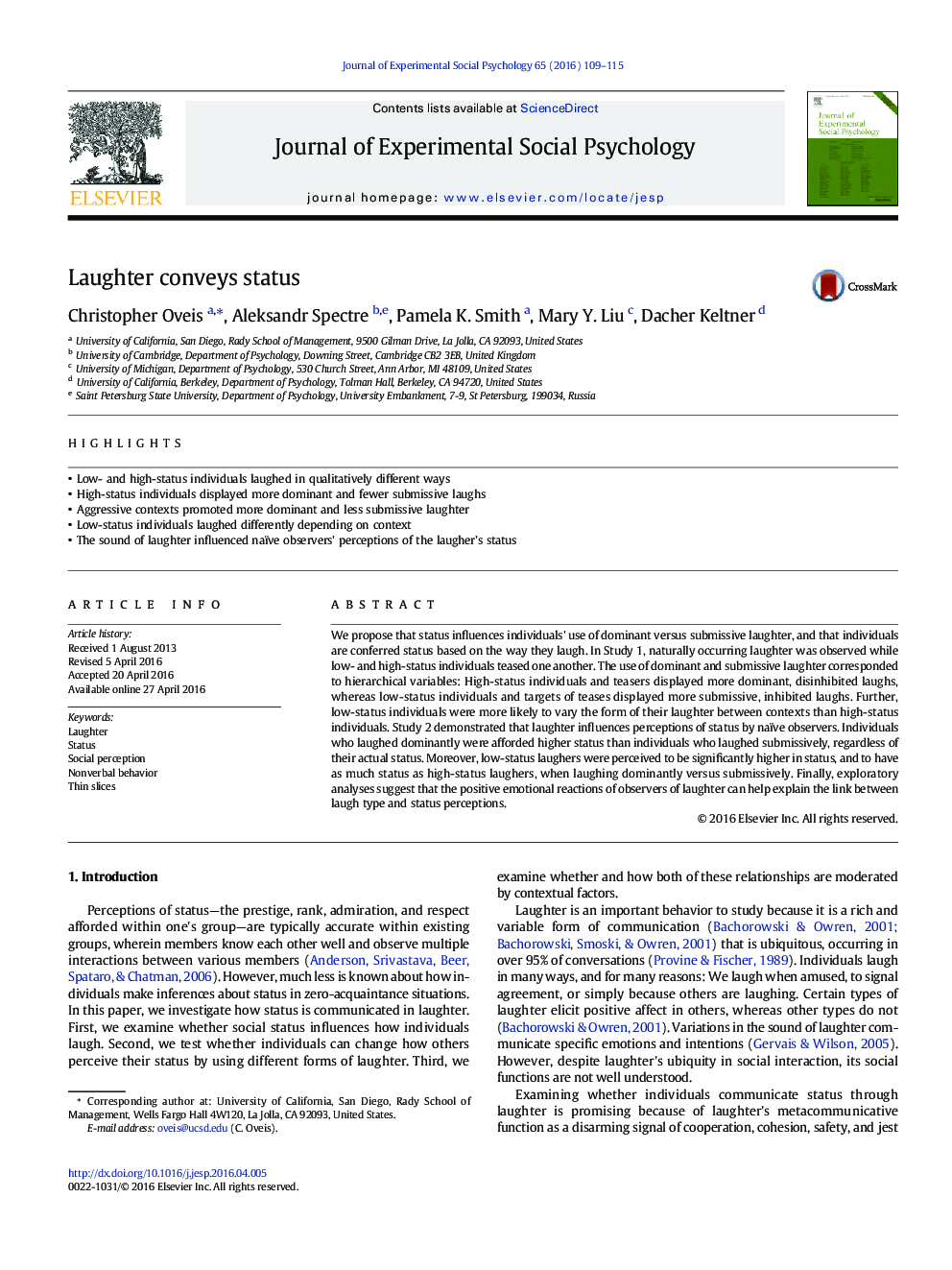| کد مقاله | کد نشریه | سال انتشار | مقاله انگلیسی | نسخه تمام متن |
|---|---|---|---|---|
| 947670 | 1475858 | 2016 | 7 صفحه PDF | دانلود رایگان |
• Low- and high-status individuals laughed in qualitatively different ways
• High-status individuals displayed more dominant and fewer submissive laughs
• Aggressive contexts promoted more dominant and less submissive laughter
• Low-status individuals laughed differently depending on context
• The sound of laughter influenced naïve observers' perceptions of the laugher’s status
We propose that status influences individuals' use of dominant versus submissive laughter, and that individuals are conferred status based on the way they laugh. In Study 1, naturally occurring laughter was observed while low- and high-status individuals teased one another. The use of dominant and submissive laughter corresponded to hierarchical variables: High-status individuals and teasers displayed more dominant, disinhibited laughs, whereas low-status individuals and targets of teases displayed more submissive, inhibited laughs. Further, low-status individuals were more likely to vary the form of their laughter between contexts than high-status individuals. Study 2 demonstrated that laughter influences perceptions of status by naïve observers. Individuals who laughed dominantly were afforded higher status than individuals who laughed submissively, regardless of their actual status. Moreover, low-status laughers were perceived to be significantly higher in status, and to have as much status as high-status laughers, when laughing dominantly versus submissively. Finally, exploratory analyses suggest that the positive emotional reactions of observers of laughter can help explain the link between laugh type and status perceptions.
Journal: Journal of Experimental Social Psychology - Volume 65, July 2016, Pages 109–115
